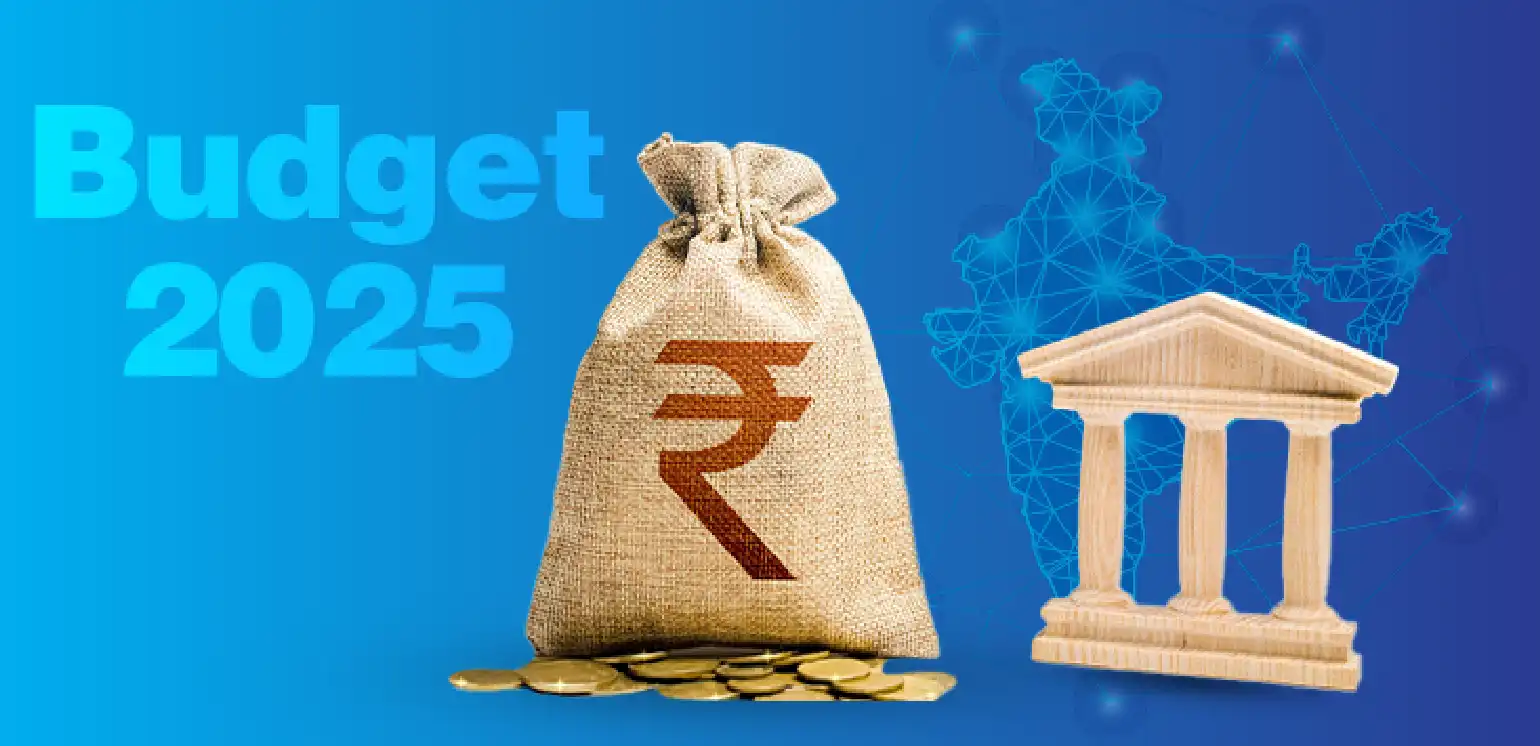Cookies Consent This website uses cookies and other tracking technologies to improve your browsing experience for the following purposes to enable basic functionality of the website, to provide a better experience on the website, to measure your interest in our products and services and to personalize marketing interactions
- Blog

The Union Budget 2025 has set the stage for India's economic trajectory, with a clear focus on strengthening the manufacturing sector, fostering business expansion, and enabling financial inclusion. For borrowers and lenders alike, budget announcements play a significant role in shaping the lending environment, influencing interest rates, and determining access to credit.
With a strong push towards making India a global manufacturing hub, the government has introduced several policy measures that will directly impact businesses and their financing needs. Let’s take a deeper look at these reforms and their implications on lending.
Budget Reforms and Their Influence on Lending
Boost to Manufacturing and MSMEs:
The government has revised the investment and turnover limits for MSMEs to help them scale and access better resources:
Micro Enterprises: Investment limit raised from Rs.1 crore to Rs.2.5 crore; turnover limit from Rs.5 crore to Rs.10 crore.
Small Enterprises: Investment limit increased from Rs.10 crore to Rs.25 crore; turnover limit from Rs.50 crore to Rs.100 crore.
Medium Enterprises: Investment limit expanded from Rs.50 crore to Rs.125 crore; turnover limit from Rs.250 crore to Rs.500 crore.
These adjustments aim to facilitate MSME growth, allowing businesses to scale operations without losing the benefits that come with being an MSME.
Credit Guarantee Expansion for Small Businesses:
To make borrowing more accessible and affordable for small businesses, the government has:
Increased Credit Guarantee Cover: For micro and small enterprises, the cover has been raised from Rs.5 crore to Rs.10 crore, enabling additional credit of Rs.1.5 lakh crore over five years.
Support for Startups: Guarantee cover for startups has doubled from Rs.10 crore to Rs.20 crore, with a reduced fee of 1% for loans in 27 priority sectors.
Exporter MSMEs: Now eligible for term loans up to Rs.20 crore with enhanced guarantee cover.
These measures reduce the risk burden on lenders, encouraging them to extend credit to businesses that may have previously struggled to secure financing.
Infrastructure and Capital Expenditure Investments
The government has increased capital expenditure to Rs.11.2 trillion for 2025-26, up from the revised target of Rs.10.18 trillion in the current fiscal year. This substantial investment is expected to boost demand for construction equipment loans, commercial vehicle loans, and business loans required for large-scale projects.
Policy Support for Green Financing
With sustainability at the forefront, the budget introduces green financing initiatives to incentivize businesses adopting eco-friendly practices. While specific figures are pending, lending institutions are anticipated to roll out specialized loan products with preferential rates for companies investing in green technology.
Impact on Loan Interest Rates
Interest rates play a pivotal role in determining borrowing costs. The budget’s fiscal policies and deficit targets influence the Reserve Bank of India’s (RBI) monetary stance, which in turn impacts lending rates.
Government Borrowing and Inflation Control: If the fiscal deficit is well-managed, it may ease pressure on interest rates, keeping borrowing costs stable or even leading to rate cuts in the long term.
Sectoral Lending Benefits: Government-backed lending programs, such as priority sector lending (PSL) incentives, may lead to lower interest rates for eligible businesses.
What This Means for Businesses Seeking Loans
With an optimistic economic outlook, businesses now have the opportunity to expand, invest in capacity-building, and modernize operations. Access to credit is expected to improve, particularly for MSMEs, startups, and manufacturing units.
Lower Borrowing Costs: Businesses in government-prioritized sectors may benefit from reduced interest rates.
Easier Loan Approvals: Credit guarantee enhancements reduce risk for lenders, improving loan approval rates.
Increased Financing Options: More targeted loan schemes will emerge, catering to specific industry needs.
Conclusion:
As the government places manufacturing and business expansion at the core of economic policy, securing the right financing is essential. HDB Business Loans provides customized solutions for working capital, expansion, and operational needs. With competitive interest rates, flexible repayment terms, and fast approvals, HDB Financial Services ensures businesses can seize emerging opportunities and grow in a rapidly evolving market.
Capitalize on the benefits of Budget 2025 and take your business to the next level with HDB Business Loans today.




























































